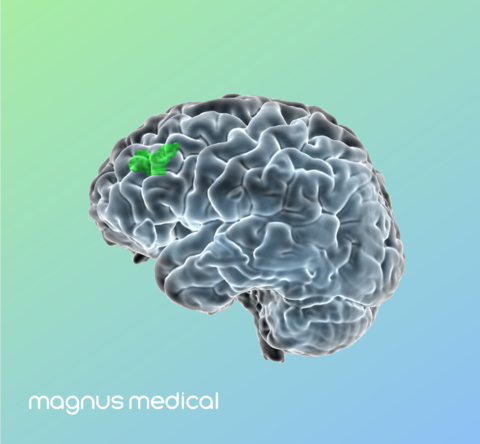
BURLINGAME, Calif.– Magnus Medical, Inc., a medical device company and developer of brain stimulation technology for the treatment of neuropsychiatric disorders, today announced that the American Medical Association (AMA) has issued new Category III Current Procedural Terminology (CPT) codes for targeted, accelerated intermittent theta burst stimulation (iTBS) for depression, encompassing Magnus’ SAINT™ targeted treatment. The new codes will be published January 1, 2024, and effective July 1, 2024.
“The new AMA codes represent a significant milestone for Magnus, validating the impact of SAINT. Moreover, these new codes will provide increased access across sites of service to SAINT treatment for the millions who suffer from major depressive disorder (MDD),” said Dave Vort, president of Magnus. “When these codes are active, hospitals using the SAINT neuromodulation system can submit claims directly for SAINT treatment, further expanding the adoption of our novel, rapid-acting therapy for treatment-resistant major depression.”
CPT codes are maintained and granted by the AMA CPT Editorial Panel, which is responsible for ensuring CPT codes reflect the latest medical care available to patients. These codes are widely used by government payers, including Medicare and Medicaid, and commercial insurance companies to describe healthcare services and procedures for reimbursement.
“We are entering a remarkable new era in mental health care,” said Carlene MacMillan, M.D., co-founder of Fermata, a company with novel approaches to psychiatric treatment, and chief medical officer of Osmind, an electronic health record company for mental health providers. “With these new codes, this targeted, rapid neuromodulation protocol has the potential to reach patients far and wide across different levels of care. The AMA’s approval of these codes for neuro-navigated accelerated iTBS is a vital recognition that this is a distinct therapy for patients suffering from difficult-to-treat depression.”
Magnus’ SAINT technology uses structural and functional magnetic resonance imaging (MRI) to build a proprietary algorithm that identifies the optimal brain region to target for neurostimulation in people with MDD. Whereas traditional transcranial magnetic stimulation typically involves four-to-six weeks of treatment, this new approach is delivered on an accelerated, five-day timeline. It is precisely tailored to each person’s brain circuitry. Patients have 10 sessions daily, comprising 10-minute treatments with 50-minute breaks for five consecutive days.
Previous clinical studies evaluating the SAINT therapy have been extremely promising, with approximately 80-90% of people achieving remission of depression symptoms following the treatment protocol.1 The SAINT neuromodulation system was granted Breakthrough Device Designation in 2021 and 510(k) clearance by the U.S. Food & Drug Administration (FDA) in 2022.

